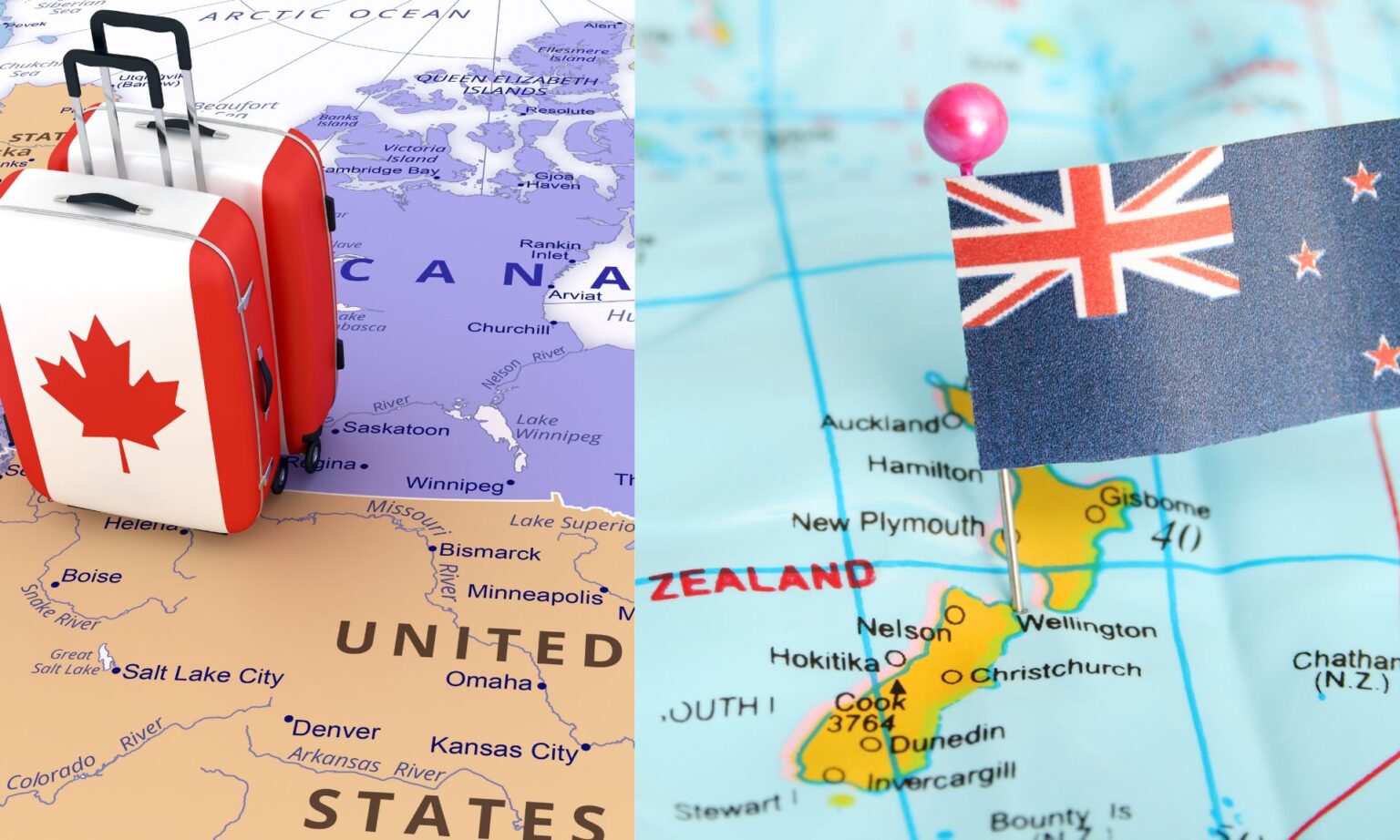Introduction
The decision to move or travel to a new country often involves considering various factors, with the cost of living being a significant concern. Canada and New Zealand, both known for their breathtaking landscapes and high quality of life, are popular destinations for people seeking new opportunities. In this article, we will delve into a comparative analysis of a popular question “Is Canada More Expensive Than New Zealand?” to help individuals make informed decisions about where to live or visit.
Currency Exchange Rates:

One of the initial aspects to consider is the currency exchange rate between the Canadian dollar (CAD) and the New Zealand dollar (NZD). Exchange rates can significantly impact the affordability of goods and services in a country. It’s essential to monitor the exchange rates to gauge the relative cost of living.
Cost of Housing:
Housing costs are a crucial factor in determining the overall cost of living. In both Canada and New Zealand, major cities tend to have higher housing expenses compared to rural areas. Factors such as location, size, and amenities influence the cost of accommodation. As of recent data, cities like Vancouver and Toronto in Canada and Auckland and Wellington in New Zealand have higher housing costs.
Transportation:

Transportation costs can vary depending on the availability and efficiency of public transportation, as well as the cost of owning and maintaining a vehicle. Canada’s vast size often results in higher transportation costs, especially if one needs to travel between provinces. In contrast, New Zealand’s smaller size may lead to more manageable transportation expenses.
Healthcare:
Both Canada and New Zealand have public healthcare systems, but there can be differences in the coverage and services provided. In Canada, healthcare is publicly funded and available to all residents. New Zealand also has a public healthcare system, and residents may also choose to purchase private health insurance for additional coverage.
Education:
For those with families or individuals considering further education, the cost of schooling is an important consideration. Both Canada and New Zealand offer high-quality education systems, but tuition fees for international students can vary. Researching the cost of education in specific provinces or regions is crucial for accurate comparisons.
Food and Utilities:
The cost of groceries and utilities can significantly impact the monthly budget. Factors such as climate and agricultural practices can influence food prices. Canada, with its diverse climate and vast geography, may experience variations in food costs across regions. New Zealand’s reliance on agriculture can also influence food prices, but the impact may differ.
In summary, determining whether Canada or New Zealand is more expensive depends on various factors, including individual circumstances and preferences. Both countries offer unique opportunities and experiences, and the cost of living can vary widely within each nation. Prospective residents or travelers are encouraged to conduct thorough research, considering factors like exchange rates, housing, transportation, healthcare, education, and everyday expenses, to make informed decisions based on their specific needs and priorities.
Frequently Asked Questions: Comparing Costs in Canada and New Zealand
Is the cost of living higher in Canada or New Zealand?
The cost of living can vary depending on factors such as location, lifestyle, and individual spending habits. Generally, major cities in both Canada and New Zealand tend to have higher living costs compared to rural areas.
How do housing costs compare between Canada and New Zealand?
Housing costs are influenced by factors like location and size. Cities like Vancouver and Toronto in Canada and Auckland and Wellington in New Zealand typically have higher housing expenses. It’s essential to research specific regions for accurate comparisons.
Are transportation expenses higher in Canada due to its size?
Canada’s vast size may result in higher transportation costs, especially for interprovincial travel. New Zealand, being smaller, may have more manageable transportation expenses. However, actual costs depend on factors like public transportation availability and vehicle ownership.
How do healthcare systems differ between Canada and New Zealand?
Both countries have public healthcare systems, but there may be differences in coverage and services. Canada’s healthcare is publicly funded and available to all residents. In New Zealand, public healthcare is also accessible, and residents may opt for private insurance for additional coverage.
What about education costs for international students?
Tuition fees for international students can vary between Canada and New Zealand. Both countries offer high-quality education, but it’s crucial to research specific provinces or regions to get an accurate comparison of educational expenses.
Do food prices differ significantly between Canada and New Zealand?
Food prices are influenced by factors like climate and agricultural practices. Canada’s diverse climate and vast geography may lead to variations in food costs. Similarly, New Zealand’s reliance on agriculture can impact food prices, but the extent may differ.
Are utilities more expensive in Canada or New Zealand?
The cost of utilities, including electricity, water, and heating, can vary. It’s advisable to consider regional differences and energy sources to get a better understanding of utility costs in specific areas of Canada and New Zealand.
How do exchange rates impact the overall cost of living?
Exchange rates between the Canadian dollar (CAD) and the New Zealand dollar (NZD) can affect the affordability of goods and services. Monitoring exchange rates is crucial for understanding the relative cost of living in each country.
Are there regional variations in costs within Canada and New Zealand?
Yes, both Canada and New Zealand exhibit regional variations in living costs. Factors like local economies, demand for housing, and access to amenities can contribute to differences in expenses within each country.
Which country offers better value for money based on overall expenses?
The determination of better value for money depends on individual preferences, lifestyle, and priorities. Conducting thorough research and considering specific factors that matter most to you will help in making an informed decision about living or traveling in Canada or New Zealand.
Conclusion: Navigating the Choice Between Canada and New Zealand
In the perpetual quest for the perfect destination, the choice between Canada and New Zealand boils down to a myriad of factors, with the cost of living being a significant influencer. Both countries offer unique opportunities, picturesque landscapes, and a high quality of life, but understanding the nuances of expenses is crucial for making an informed decision.
While Canada’s vast expanse and diverse climate may contribute to regional variations in costs, New Zealand’s smaller size and agricultural focus also bring about differences in living expenses. The comparison between these two nations encompasses considerations such as housing, transportation, healthcare, education, and everyday essentials.
For prospective residents or travelers seeking clarity, it’s imperative to delve into the specifics of each region. Major cities in both countries, such as Vancouver and Auckland, are known for higher living costs, particularly in terms of housing. Transportation expenses, influenced by factors like public transit efficiency and the need for interprovincial travel, may differ.
The public healthcare systems in Canada and New Zealand are comparable, but nuances exist, and understanding these distinctions can impact choices regarding health coverage. Educational pursuits come with their own set of considerations, as tuition fees for international students vary, and the reputation of institutions may influence decisions.
Food prices, influenced by climate and agricultural practices, fluctuate in both nations, necessitating a closer look at regional disparities. Additionally, the impact of currency exchange rates cannot be ignored, as they shape the overall affordability of goods and services.
Ultimately, the determination of whether Canada or New Zealand is more expensive depends on individual priorities, preferences, and circumstances. Both countries offer a high standard of living, and the choice should align with personal values, career goals, and lifestyle preferences. Armed with comprehensive research and an understanding of specific needs, individuals can confidently embark on the adventure of choosing between these two captivating destinations.
In another related article, Top 5 Affordable Destinations to Explore in Canada






